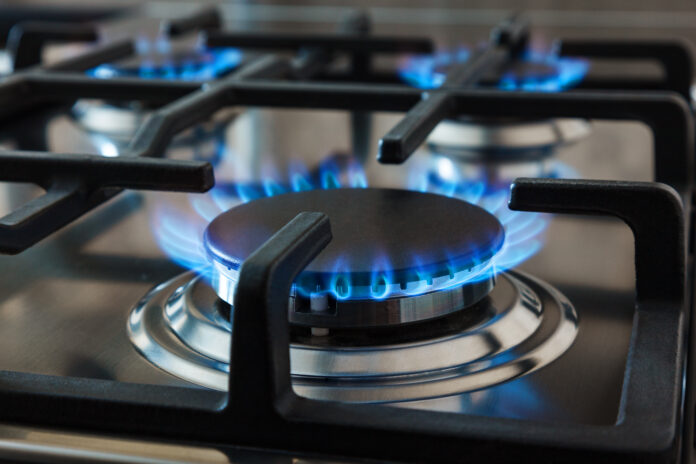
The United States is considering banning gas stoves due to concerns over indoor pollution, which has been said to cause high asthma rates in children. The U.S. Consumer Product Safety Commission (CPSC) raised concerns over the “hidden hazard” of owning a gas stove last month, causing many across the country to worry for their safety. CPSC commissioner Richard Trumka Jr. suggested that any ban that comes into place would be applied to new gas stoves rather than existing ones.
While this news may come as a shock to the public, many of whom rely on gas stoves for their daily cooking activities, the CPSC had already been considering a ban on stoves for several months. The justification for the proposed ban is safety concerns, with pollutants from gas stoves being linked to childhood asthma and worsening respiratory conditions. In December 2022, the International Journal of Environmental Research and Public Health published a study that showed the link between the indoor use of gas stoves and a heightened risk of asthma in children. The study suggested that as many as 13% of childhood asthma could be linked to gas stove usage. The CPSC is currently seeking public input on the potential ban and conducting a further assessment on the matter.
What Does The White House Think?
Despite the concerns raised by the CPSC, President Biden announced in January that he is not in favor of a ban on gas stoves. At present, around 38% of U.S. households own a gas stove. Biden clarified that no ban on gas stoves would be going ahead. An alternative to banning these appliances could involve setting emissions standards on gas stoves. This will also require the installation of proper ventilation in the form of a stove hood extractor.
Studies Regarding the Impact of Gas Stoves
Recent studies have found that without proper ventilation, the release of nitrogen dioxide, carbon monoxide, and fine particulate matter from a gas stove can lead to health complications. Lawmakers in Washington wrote a letter to the Chairman of the CPSC, Alexander Hoehn-Saric, stating “Short-term exposure to NO2 is linked to worsening asthma in children, and long-term exposure has been determined to likely cause the development of asthma.”
While the public may only recently have been made aware of the potential dangers of owning a gas stove, the risks have been well documented. Studies about these dangers date back to the 1980s. The risks of climate change associated with burning natural gas have been clear with knowledge about greenhouse gas emissions being released into the atmosphere. But scientific reviews have also shown the potential risk to children’s health in unventilated spaces with gas stoves. This has not been deemed sufficiently hazardous for a ban before now. However, some cities are already moving to ban the use of natural gas in new buildings. Berkeley announced a ban on gas hookups in new buildings in 2019. This has been followed by San Francisco in 2020, and New York City in 2021. Although, this decision was made as part of a green transition rather than due to concerns for public health.
How Will the Public Be Impacted?
A ban on gas stoves has not been recommended in previous years largely due to the widespread use of natural gas in the U.S., as one of the cheapest forms of energy, as well as the assumed access to ventilation appliances. However, a study from Stanford University showed that between two-thirds and three-quarters of Americans rarely or never turn on their stove ventilators. In addition, many homes and apartments – particularly in poorer neighborhoods – do not have adequate ventilation or use stove fans that recirculate the air through a filter, rather than remove nitrogen oxide from the air.
But what would it mean if a ban on gas stoves came into place? There is currently no law to make landlords switch gas stoves to electric. This means that many renters continue to use old gas stoves. Many low-income households cannot replace their stoves or buy expensive extractor fans. Thus, they will likely continue to use their existing gas stove until it breaks. If a ban comes into place, buying an electric alternative may mean using money on an expense they cannot afford. Further, a ban would likely be extremely detrimental to the restaurant industry. If the White House approved a ban, it would have to ensure that consumers and businesses are prepared to make the switch. They also have to be prepared to provide financial support to those most in need. Otherwise, the rise of energy poverty that’s been seen over the last year could increase even further.
In Conclusion
While there is no imminent threat of a ban on gas stoves, now that the issue has been raised with the public, there will be clear health concerns and likely calls from environmentalists and concerned parents for a ban on the cooking appliance. Those that can afford it may consider changing their existing gas stove to an electric appliance. Meanwhile, the CPSC and White House will most likely consider alternatives to an outright ban, which could include more accessible stove ventilators and improved energy efficiency standards for gas stoves.

Author Bio
Felicity Bradstock is a freelance writer specializing in Energy and Industry. She has a Master’s in International Development from the University of Birmingham, UK, and is now based in Mexico City.
If you would like to contact our staff writers, you can reach them at [email protected]

















Air conditioning can show significantly more harm to the indoor environment than gas appliances. Of course in heavily polluted cities like Mexico City, almost anything would be better than breathing the air.
The United States government has not yet banned gas stoves. However, there has been a growing conversation about the potential risks associated with gas stoves and other gas appliances. Some advocates have called for a ban on gas stoves due to concerns about indoor air pollution and climate change.